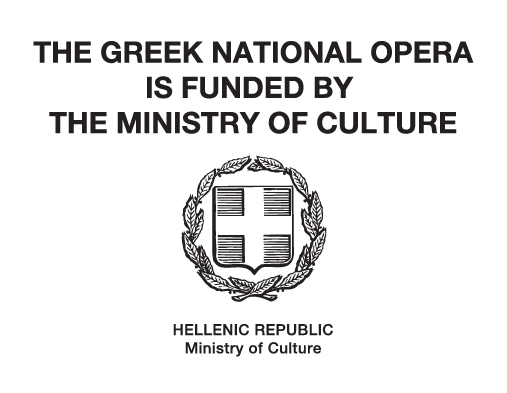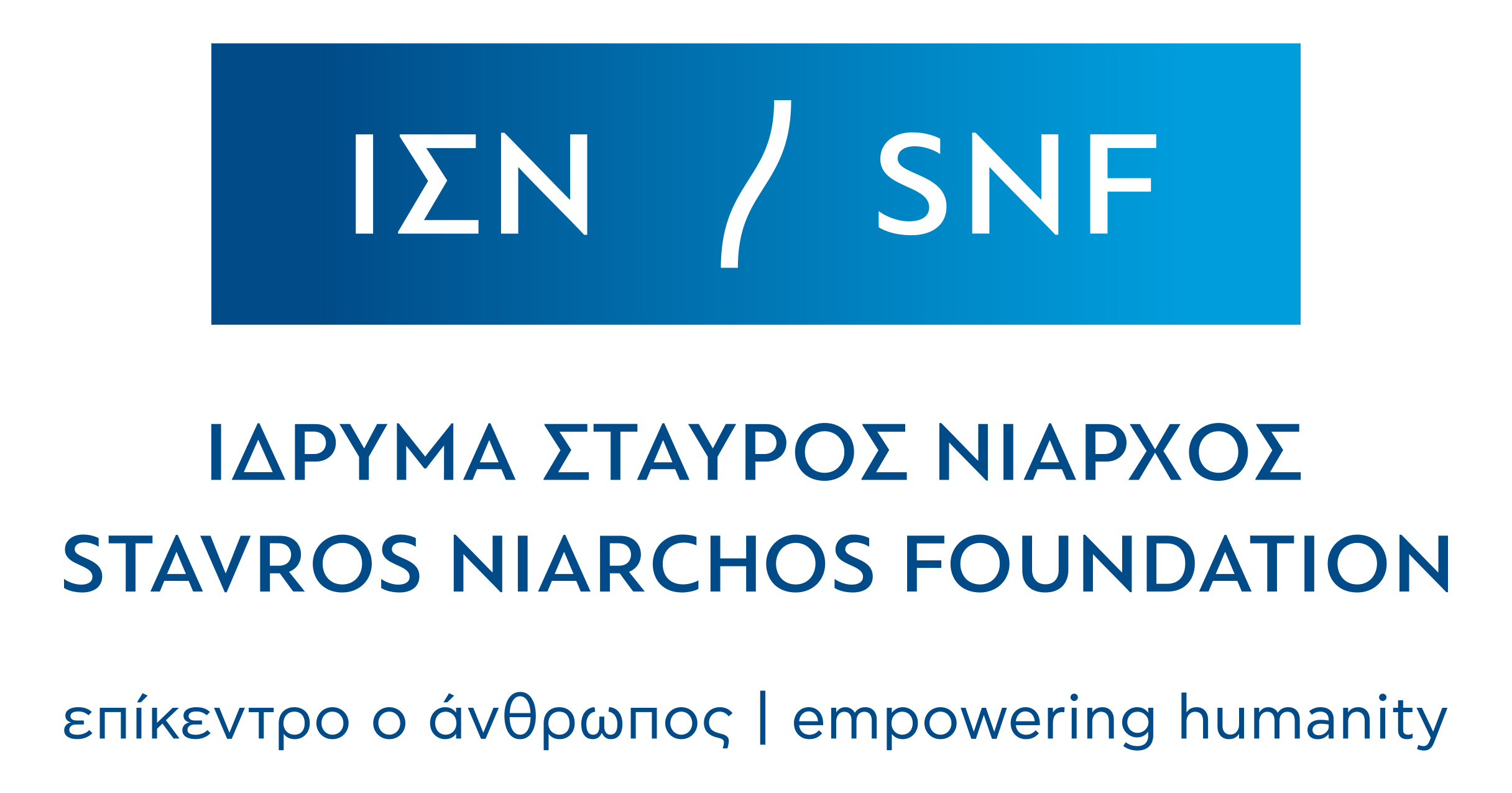Contact
ADDRESS
STAVROS NIARCHOS FOUNDATION
CULTURAL CENTER
364 Syggrou Avenue, Kallithea
TEL.
Box Office:
+30 213 0885700
Box Office email:
boxoffice@nationalopera.gr
Daily 09.00-21.00
info@nationalopera.gr
Register to our Newsletter


Conductor: Miltos Logiadis
Director: Yannis Houvardas
Associate director: Emily Louizou
Associate dramaturg: Erie Kyrgia
Sets: Eva Manidaki (Flux Office)
Costumes: Ioanna Tsami
Choreography, movement: Amalia Bennett
Lighting: Reinhard Traub
Video: Pantelis Makkas
Οn-stage camera: Dimitris Papadopoulos
Chorus master: Agathangelos Georgakatos
Leokadja Begbick
Anna Agathonos
Fatty
Christos Kechris
Trinity Moses
Tassos Apostolou
Jenny Hill
Marissia Papalexiou
Jim Mahoney
Vassilis Kavayas
Jack / Tobby
Yannis Kalyvas
Bill
Haris Andrianos
Joe
Yanni Yannissis
Six girls
Maria Mitsopoulou, Hera Zerva, Liudmila Bondarenko, Antonia Despouli, Barunka Preisinger, Magda Tzavella
With the Orchestra and Chorus of the Greek National Opera
Ticket prices: €15, €20, €35, €40, €50, €55, €60, €90
Students, children: €15
Limited visibility seats: €10
Opera • New production
Stavros Niarchos Hall of the Greek National Opera – SNFCC
Starts at: 19.30 (Sunday at: 18.30)| 

GNO lead donor

The Greek National Opera presents Kurt Weill and Bertolt Brecht’s iconic opera Rise and Fall of the City of Mahagonny, from 12 April 2024 and for a run of six performances, at the Stavros Niarchos Hall, in the SNFCC. The new production of this 20th-century masterpiece is conducted by Miltos Logiadis and directed by Yannis Houvardas, with a stellar cast of celebrated Greek protagonists. This production is made possible by a grant from the Stavros Niarchos Foundation (SNF) to enhance the Greek National Opera’s artistic outreach.
The Rise and Fall of the City of Mahagonny is a political and satirical opera based on the pointed political language of Bertolt Brecht, the prominent German poet and dramatist of “epic theatre”, and with music composed by Kurt Weill, the great German expressionist composer of the interwar period. The work describes the rise and fall of a city built for profit and pleasure, and is a critique of the capitalist system, as considered from within the ideological framework of interwar Germany’s Weimar Republic.
The work’s premiere took place in Leipzig in 1930, but was interrupted by Nazi-instigated protests. Despite the positive reviews and the changes made to both the libretto and the staging, the opera was only presented in four new productions in German theatres. Although the Berlin premiere was a great success, it was followed by a permanent ban on the performance of Weill’s music by the Nazis shortly after.
Weill composed some of his best-known songs for this opera –including “Alabama Song” and “Benares Song”– that would go on to be pulled out and sung separately by world-famous performers – everyone from Lotte Lenya to The Doors and David Bowie.
As was common in the early decades of the 20th century, and against a backdrop of dialogue between classical and commercial music, Kurt Weill experimented with various forms, such as jazz and ragtime, that he incorporated into the music vocabulary of the work.
In his Notes on the Rise and Fall of the City of Mahagonny Brecht emphasised, among other things: “Why is Mahagonny an opera? Because its basic stance is that of an opera, it namely aims at the ephemeral, untroubled pleasure. Does Mahagonny approach its subject matter with the intention of enjoying it? It does. Is Mahagonny an experience? Yes. Because Mahagonny is a form of entertainment. The opera Mahagonny consciously vindicates the absurd that is inherent in opera as a genre.”
About the style and performance of the music of the Rise and Fall of the City of Mahagonny, Kurt Weill noted, among other things: “The singers’ theatrical movement, the chorus’ movement, as well as the overall style of the direction of this opera is determined by the style of the music. This music is never illustrative. It attempts to materialise man’s attitude toward different situations that lead to the city’s rise and fall. This attitude has been established in such a way in the music, so that a simple, natural performance of the music can alone determine the performative style. That is why performers can also limit themselves to the simplest and most natural gestures.”
Nearly a century later, the Rise and Fall of the City of Mahagonny remains alarmingly topical, as financial crises continue to recur and the spectre of Nazism ironically hangs over humanity. Today, Weill and Brecht’s opera has become one of the most popular pieces of the 20th century worldwide and is now a staple in the repertoire of the globe’s leading opera houses and opera festivals.
The Greek National Opera has chosen the renowned Greek theatre director and former artistic director of the National Theatre of Greece, Yannis Houvardas, to lead the direction of this new production. Following the huge success enjoyed by his 2018 production of Janáček’s The Makropulos Affair, Houvardas is returning to the Greek National Opera to present the “golden city of our dreams that crumbles to dust and is effaced before our very eyes”, in a political reading, with moments of “exasperation and despair”. Alongside him, Eva Manidaki has designed the sets, Ioanna Tsami the costumes, Amalia Bennett the movement, Reinhard Traub the lighting, and Pantelis Makkas the video projections. Emily Louizou serves as associate director and Erie Kyrgia as associate dramaturg.
Yannis Houvardas notes the following about his new staging of this opera by Weill and Brecht: “Let us set off at last for Mahagonny, the golden city of our dreams that lies along the Shores of Solace, far from the bustle of the world. Here, in Mahagonny, life is glorious. But even here, in Mahagonny, there are moments of exasperation and despair. The time has come to crushingly answer God’s questions about our sinful lives. Glorious Mahagonny crumbles to dust and is effaced before our very eyes. Inside the epic, spectacular, and resolutely artificial world forged by Brecht and Weill, global capitalism dances in the spurred boots of Texan pioneers while holding the long-barrelled pistols of Wild West gunfighters. And when it sings, it takes on the macho voice of John Wayne and the delicate breathiness of girls whiling away all their time –day and night– inside the drunken saloons.”
The production is led by distinguished conductor Miltos Logiadis and features celebrated Greek soloists, such as Anna Agathonos, Christos Kechris, Tassos Apostolou, Marissia Papalexiou, Vassilis Kavayas, Yannis Kalyvas, Haris Andrianos, Yanni Yannissis, and others.
STAVROS NIARCHOS FOUNDATION
CULTURAL CENTER
364 Syggrou Avenue, Kallithea
Box Office:
+30 213 0885700
Box Office email:
boxoffice@nationalopera.gr
Daily 09.00-21.00
info@nationalopera.gr